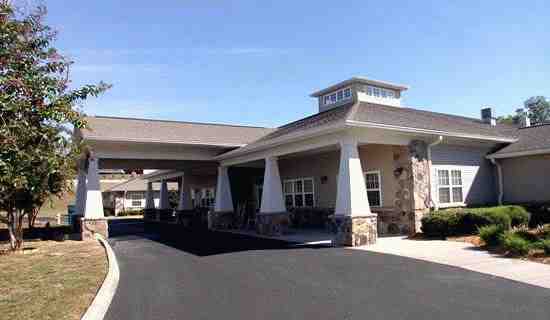Choosing an Assisted Living Facility
How do I choose assisted living?

Is home care cheaper than assisted living?
Is assisted living worth it?
What are some factors that a family should consider before choosing an assisted living facility?

How do I find the right senior living?
Choosing an older living community can be a monumental decision …. 23 factors to consider when evaluating older living communities
- Mission and purpose. …
- Place. …
- Access to entertainment. …
- Travel. …
- Community type. …
- Service levels. …
- Accreditations. …
- Access to rehabilitation and qualified care.
If someone is unable to make decisions on their own and can no longer live independently, they go through a conservation process with the courts and usually end up in qualified care, covered by Medicaid.
Your local or state Aging Agency can tell you if your state maintains a database of searchable help facilities. Many do. Use the federal government’s Eldercare Locator internet locator or call 800-677-1116 and find the nearest aging agency.
Average Cost of Elderly Care in Alberta According to CMHC’s 2018 Housing Report for the Elderly, the average cost of renting housing for the elderly in Alberta was $ 2,780 per month. The actual costs you will pay will vary greatly depending on your needs and other factors (see more below).
What should I look for in a senior living community?
Look for a support system, socialization, and content that fits your lifestyle, needs, and budget. Your search begins with understanding the types of retirement communities, the level of care offered in each, and whether that community is a retirement community for ongoing care, which we will explain next.
What to look for in a retirement community
- Recreation. A good recreation schedule is essential for any successful retirement community. …
- Medical assistance. When it comes to choosing a retirement community, you would want to have a good understanding of the medical care available to you. …
- Lifestyle. …
- Maintenance. …
- Time. …
- Budget.
20 questions to ask the living community with help
- How many staff members take care of each resident?
- What type of training does your nursing staff provide?
- Are staff trained to care for residents with memory loss or Alzheimer’s disease?
- Is the staff on site 24/7?
- Can staff give medication and what is the procedure?
- Do you have nurses on staff?
Average Cost of Elderly Care in Alberta According to CMHC’s 2018 Housing Report for the Elderly, the average cost of renting housing for the elderly in Alberta was $ 2,780 per month. The actual costs you will pay will vary greatly depending on your needs and other factors (see more below).
What to ask when looking for assisted living facilities?

What should I pack for assisted living?
What should I ask a nursing home?
5 questions for setting up a qualified patient care facility
- What are your inspection ratings or what is the star of your qualified nursing staff? …
- What activities are available to my loved one? …
- Is there RN available always in your qualified care? …
- What training does your staff have to deal with my loved one who has dementia?
If you are looking for a nursing home, seek a recommendation from your doctor. Once you find out what options you have, it’s a good idea: Consider what you want. What is important to you – nursing, meals, physical therapy, religious affiliation, hospice care, or special care units for dementia patients?
- Gifts that are still being given. Your time and attention while visiting nursing homes are in themselves a wonderful gift. …
- Blankets and outerwear. Extra blankets are always welcome. …
- Gripper slippers or socks. Cold feet need warm slippers. …
- Bird feeder. …
- Framed photographs and works of art. …
- Wreaths. …
- Goodies to share. …
- Flowers.
There are many complaints among the residents of nursing homes …. Common complaints include:
- Slow answers to calls. …
- Poor food quality. …
- Personnel issues. …
- Lack of social interaction. …
- Sleep disorders.
What are the different levels of assisted living?

Definition: Certain Level 4 Incentive Living – Improved Assisted Living is an environment that provides 24-hour planned and unplanned professional and personal care and on-site support, provided by licensed nurses and health care assistants.
The community care committee is a step below independent living and a step above living with help. Services are often limited, but a security overseer is provided. Residents have their own apartments and bathrooms and include dining and activity services.
The average length of stay in a memory care unit and / or living community with assistance is two to three years. However, this amount of time can vary greatly, from just a few months to ten years or more. The good news is that memory care communities offer services that are very beneficial to both residents and family members.
There are usually three levels of caregiver certification that we have named – high, medium and low.
What is Level 4 assisted living?
Is assisted living better than a nursing home?
Overall, the main difference between nursing home care and assisted living is that nursing homes provide medical and personal care in a clinical setting, while assisted living primarily provides personal care in a social environment such as a home.
One of the reasons that assisted housing can become more expensive than home care or nursing home care is that most assisted care facilities do not provide personal care as part of the basic benefit. Instead, most facilities require residents to purchase such care from the facility or from an external service provider at an additional cost.
The community care committee is a step below independent living and a step above living with help. Services are often limited, but a security overseer is provided. Residents have their own apartments and bathrooms and include dining and activity services.
Advantages and disadvantages of assisted living for the elderly
- Pro: Allows seniors to help with daily activities. …
- Cons: It can cost a lot of money. …
- Pro: Gives seniors a chance to socialize. …
- Cons: May restrict the privacy of seniors. …
- Pro: Helps seniors maintain a sense of independence. …
- Cons: It often provides the elderly with inadequate medical care.







